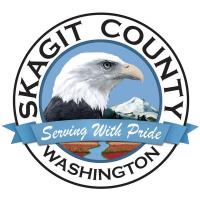Skagit County Adopts 2025 Budget
The Skagit County Board of Commissioners unanimously approved the 2025 budget on Monday, December 9, 2024. The preliminary budget was made available to the public on November 18, 2024, with a budget presentation and public hearing that followed on December 2, 2024.
We aim to be transparent with residents and employees about how the county is allocating funds in the coming year. All residents are touched in one way or another by the work of Skagit County, and it’s important to understand how the County is working to build a sustainable foundation for a safe, healthy, and welcoming community.
For fiscal year 2025 we know that we face an uncertain budget future with the state, coinciding with the end of federal recovery dollars and new mandates. With minimal sustainable growth in revenues, to reach the desired level of services while making progress towards implementing the County’s strategic goals, the budget focuses on maintaining essential services, workforce recruitment and retention, public safety, maintaining healthy reserves, strategic plan investments and full cost reimbursement.
Said Peter Browning, Chair of the Board: “We are proud that our leaders came together once again and supported a budget that balances funding for essential county services and enhances additional important services that support a thriving community.”
The budget includes an expense budget of $338.7 million, including nearly $85.5 million of General Fund expense and revenues of $73.4 million. This includes the spending of approximately $12.1 million in reserves. which leaves a projected ending fund balance of nearly $20 million which includes our targeted two months of reserves or $14.2 million and funding for one-time projects.
Commissioner Wesen noted that “years of conservative budgeting” has allowed the County the ability to lean on reserves during the past two years. The County remains committed to adhering to past practices and sound governmental budgeting principles, maintaining the Government Finance Officers Association recommended two months of reserves in the General Fund.
The General Fund expense budget of $85,459,464 reflects an increase of 4.8% from the 2024 modified budget. The revenue budget of $73,389,817 includes a one percent property tax increase ($297,645), estimated collections from new construction ($295,800), and a sales tax projection that is flat with the 2024 projection. The one percent property tax increase will cost the owner of a $520,000 home between $6.27 and $12.62 per year, depending on their location.
The end of 2024 marks the discontinuation of time-limited state and federal revenue to respond to and address the impacts of the COVID-19 pandemic on our community. Skagit County obligated $25,096,557 American Rescue Plan Act (ARPA) funding from the U.S. Department of the Treasury. County departments and community partners worked diligently over the past three years to ensure the effective investment of ARPA funds that supported the Board’s directives to direct resources to communities, businesses, and essential government services most impacted by the COVID-19 pandemic. As we returned to a sense of normalcy after the pandemic, current ARPA-funded staff, projects, and services no longer have a dedicated funding source to replace ARPA, yet the needs of the people we serve have not decreased, and the demand for services has increased in many areas. We have relied on the strategic plan to inform our spending decisions during this transition.
We will continue to be proactive and implement strategies going forward that foster cost optimization and value optimization. Our financial practices will continue to maintain stable fund balances to protect our community. We are committed to our employees and community, and our goal is to continue that tradition.
To view the County’s adopted 2025 budget, visit Skagit County's budget webpage at www.skagitcounty.net/Departments/BudgetFinance/2025Budget.htm. For questions, please contact the Commissioners’ Office at commissioners@co.skagit.wa.us or call (360) 416-1300.
-
Trisha Logue
- December 12, 2024
- 360-416-1300
- Send Email

